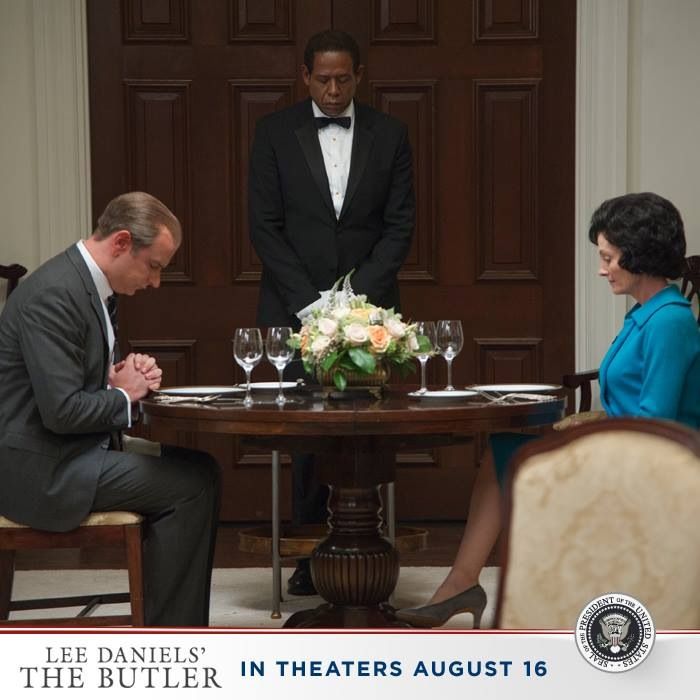The Butler (full title Lee Daniels’ The Butler)[4][5] is a 2013 American historical drama film directed and co-produced by Lee Daniels with a screenplay by Danny Strong.[6] It is inspired by Wil Haygood’s Washington Post article “A Butler Well Served by This Election.”
Loosely based on the real life of Eugene Allen, who worked in the White House for decades, the film stars Forest Whitaker as Cecil Gaines, an African American who witnessed notable political and social events of the 20th century during his 34-year tenure as a White House butler.
The Bulter focuses on the civil rights movement from the perspective of ordinary Black families. The Civil Rights Movement was a social and political campaign in the United States from 1954 to 1968 that fought to end legalized racial discrimination, segregation, and disenfranchisement.
It shows us how young people played a significant role in protesting against segregation. For example, we see the film young black college attendees forming groups to fight against racism, which results in them being arrested at the dinner after demanding to be served at the white people-only counter. It also highlights how different generations viewed the civil rights movement. The older generation is portrayed as less rebellious and more traditional than Cecil’s. The older generation was more traditional as they lived in an era in which protesting had not changed their situation but only worsened it. Thus, they were more tolerant of oppression. This is shown by Cecil Gaines’s fight with his activist son. It also shows how political disputes can impact the family, as demonstrated by the rift in Cecil’s marriage. The film also highlights how the Vietnam War affected black families who were also suffering from discrimination. Black people participating in the Vietnam War showed that they were still patriotic even in their oppression by the country. Louis and Cecil reconcile to support the civil rights movement, showing how people set their differences aside to fight towards a common goal.
In a televised address on June 11, 1963, Kennedy called racial discrimination a moral crisis and a time for action. The film highlights Kennedy’s involvement in the civil rights movement. On February 28, 1963, Kennedy submitted a comprehensive civil rights bill to Congress.
Meeting with civil rights leaders. Kennedy met with civil rights leaders to discuss the bill and bipartisan support. The Kennedys are portrayed positively as humble people who want peace for all Americans. Kennedy shows compassion for Louis, Cecil’s son, who was arrested. However, it also shows that Black Americans did not always trust him to initiate change. The film encourages people to be empathetic to one another and highlights the suffering of African Americans. It promotes unity and patriotism.

Provide Feedback